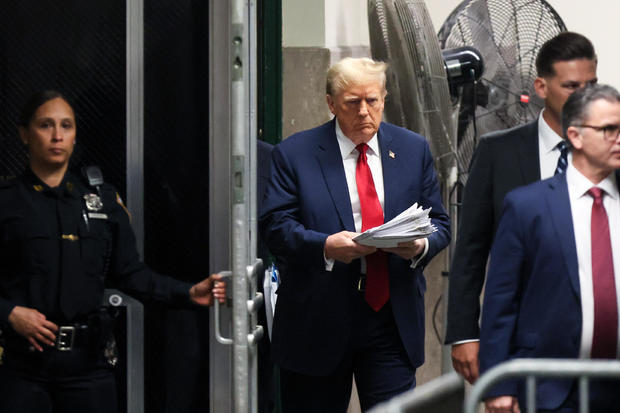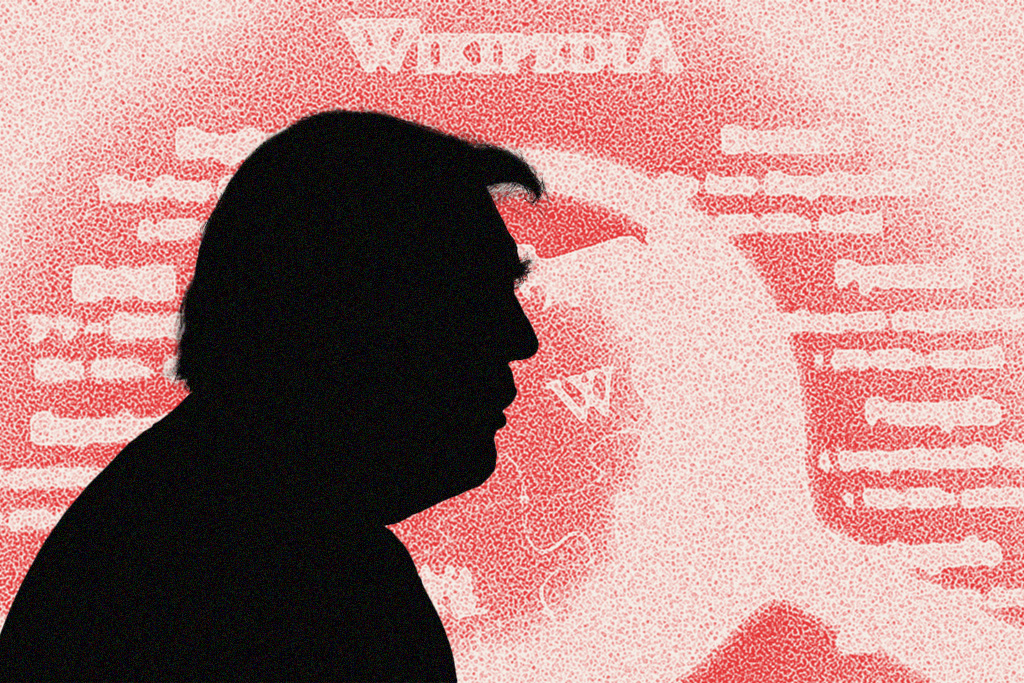Prosecutors argue Trump "willfully and flagrantly" violated gag order, seek penalty
Prosecutors on Tuesday alleged that former President Donald Trump violated a gag order imposed by Judge Juan Merchan in his New York criminal trial, saying Trump's "attacks" have "willfully and flagrantly" violated the order.
Trump's attorney Todd Blanche argued Tuesday that his client "very carefully" tried to comply with the rules of the order, but Merchan responded that Blanche was "losing all credibility with the court."
On March 26, Merchan issued the gag order intended to limit Trump's public statements, saying Trump had made statements that were "threatening, inflammatory, denigrating" toward public servants. The order bars Trump from commenting or causing others to comment on potential witnesses in the case, prospective jurors, court staff, lawyers in the district attorney's office and the relatives of any counsel or court staffer.
But despite the gag order, Trump continued to post on his social media platform Truth Social as well as speak publicly about it, prosecutors said Tuesday. Prosecutor Chris Conroy used 10 posts to illustrate his point, saying "the court should now hold him in contempt for each of the 10 posts."
Trump is on trial in New York for 34 felony counts for allegedly falsifying business records in connection to payments made to porn actor Stormy Daniels ahead of the 2016 election. He has pleaded not guilty to the charges. Prosecutors and his attorneys gave their opening statements on Monday, and the first witness, former National Enquirer publisher David Pecker, continued his testimony on Tuesday.
Conroy stressed that he did not want Trump to be jailed for contempt, instead calling for a $1,000 fine for each of the 10 alleged violations and for the posts to be deleted from Truth Social and the Trump campaign website.
Trump's attorney Todd Blanche argued that his client committed "no willful violation" of the gag order. He said that Trump should be allowed to respond to what he believes are statements about politics, even if they're made by a witness.
Merchan repeatedly asked Blanche to identify what those attacks were. Blanche did not offer specific examples, but said Michael Cohen, Trump's former attorney who made the payment to Daniels and who is likely to be a witness in the case, and Daniels had repeatedly criticized Trump politically in the lead-up to the trial.
"Give me one, give me the most recent one that he is responding to," Merchan said, a version of a question he asked several times.
"I don't have a particular tweet that is dispositive," Blanche said, asking why the example had to be "recent."
Merchan raised his voice in replying.
"I'm asking the questions, OK? I'm going to decide whether your client is in contempt or not, so please don't turn it around," Merchan said.
Blanche argued Trump did not believe he was violating the gag order when reposting others' content.
"Are you testifying under oath that that's his position?" Merchan asked. "I'd like to hear that. I'd like to hear that. Or do you want me to accept it just because you're saying it?"
Merchan grew increasingly frustrated with Blanche's attempts to explain Trump's allegedly inflammatory posts. He brought up a Trump post quoting Jesse Watters, the Fox News host. It was a quote, not a repost, the judge pointed out.
Merchan said Trump had to "manipulate" a keyboard, "use the shift key" and "put it in quotes," to post Watters' statement about a potential juror. He asked again what political attack Trump was responding to, and receiving no clear example from Blanche.




